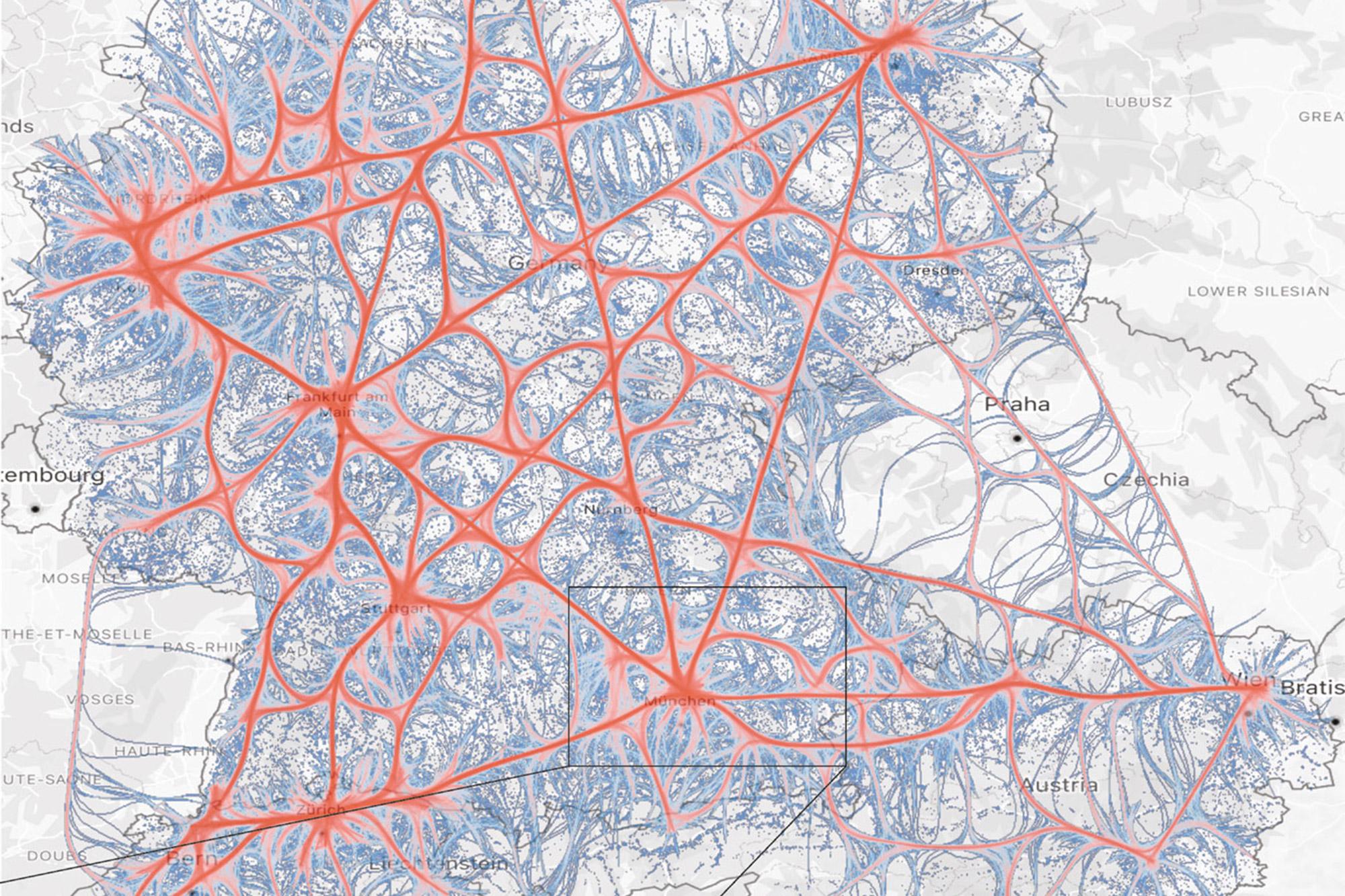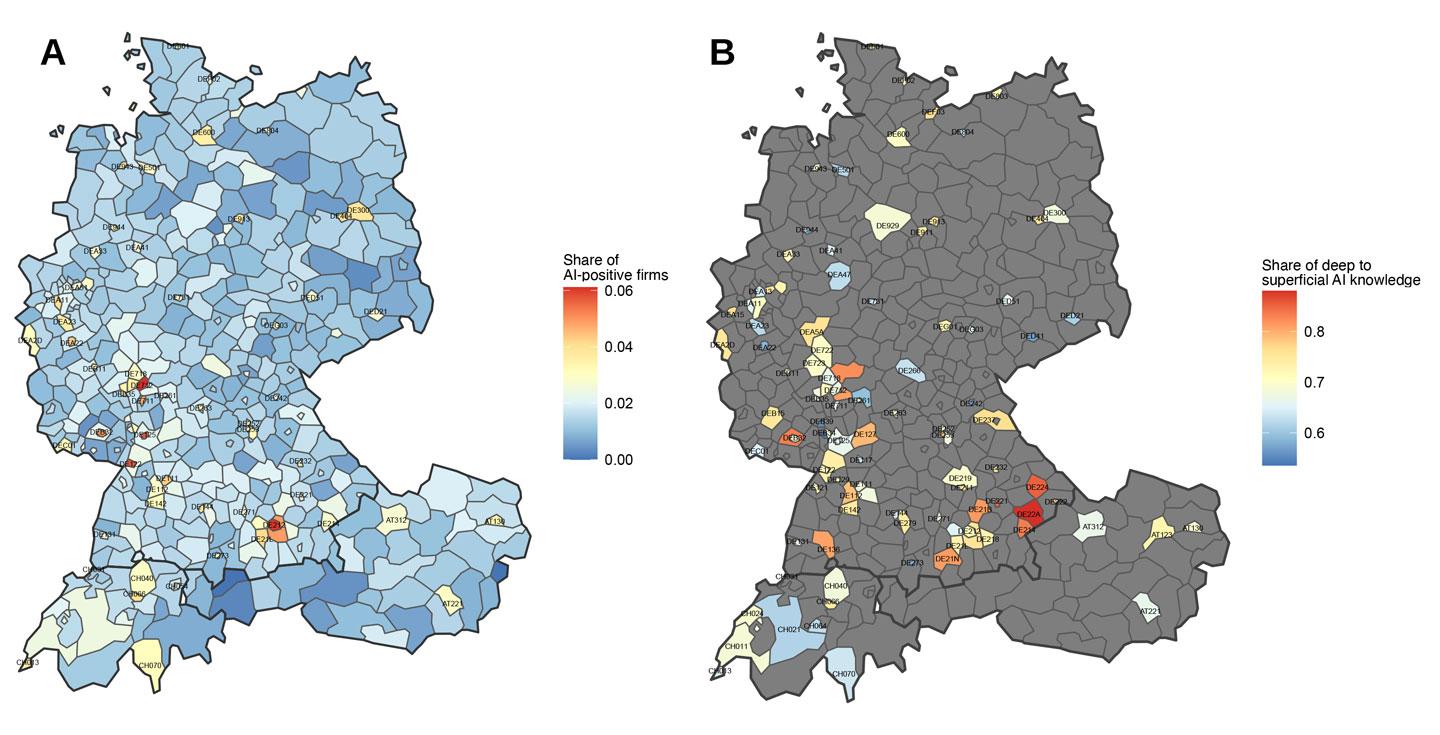AI revolution: How closed networks are turning companies into experts

Mathias Beck: " Our research indicates that the integration of AI in business occurs within relatively closed groups, similar to exclusive clubs."
How do companies, performance, and markets change through digital transformation? This is the research topic of Mathias Beck from the Swiss Economic Institute at ETH Zurich, along with his team.
Their focus is on artificial intelligence (AI). In order to identify the use of AI at company level, the researchers trained a transformer language model. They used text data from over 1.1 million websites and constructed a hyperlink network that includes more than 380,000 companies in Germany, Austria and Switzerland.
AI expertise in companies
The sample of over a million companies revealed that 2.2% of companies possess AI expertise. In certain industries, AI is already deeply integrated, such as in information and communication technology (ICT) services, mechanical engineering, as well as in retail and wholesale.

Corporate networks form AI silos
Figure 3 depicts the geographical distribution of AI adoption and illustrates that it is confined to specific regions. In most cases, these regions are interconnected through a network. This implies that the transfer of AI knowledge is not hindered by geographical distance. However, access to these networks is fundamental for companies, says principal investigator Mathias Beck: "Our research reveals that the adoption of AI in the economy occurs within relatively closed groups, akin to exclusive clubs. The network embeddedness of firms proves crucial in transforming them into knowledgeable AI users."
Structural competitive disadvantage
These network structures pose a challenge for the dissemination of AI in the economy. Knowledge is unevenly distributed across regions, sectors and clusters.
“In the long run, these dynamics could potentially create structural competitive disadvantages and economic inequality related to the transformative potential of AI technology.”
What can policy makers and managements do?
To prevent this scenario, the researchers recommend monitoring technology dissemination using more dynamic and timely innovation metrics, such as web-based measurements that focus on individual company clusters.
“Policy instruments to promote use of AI technologies should support both the production and application of AI technologies and linkages across disconnected clusters.”
At management level, the research findings emphasize how crucial it is to understand the pathways through which technology-relevant information enters the company and how it is processed beyond hierarchies. This understanding is necessary to successfully adopt AI technologies, according to Johannes Dahlke, co-author of the study.
Find more detailed information in the paper, which was published in the journal "Research Policy":
«Epidemic effects in the diffusion of emerging digital technologies: evidence from artificial intelligence adoption“
This research is being conducted as part of the National Research Programme (NRP 77), which is supporting 46 projects relating to digital transformation.
